Bazaar Plastic is a community up-cycling workshop and marketplace for disposable plastic materials. In attempt to combat the overwhelming amount of potentially recyclable plastic that is simply thrown away, this site provides a means for the community to actively participate in the recycling of their own plastic waste in engaging and meaningful ways.

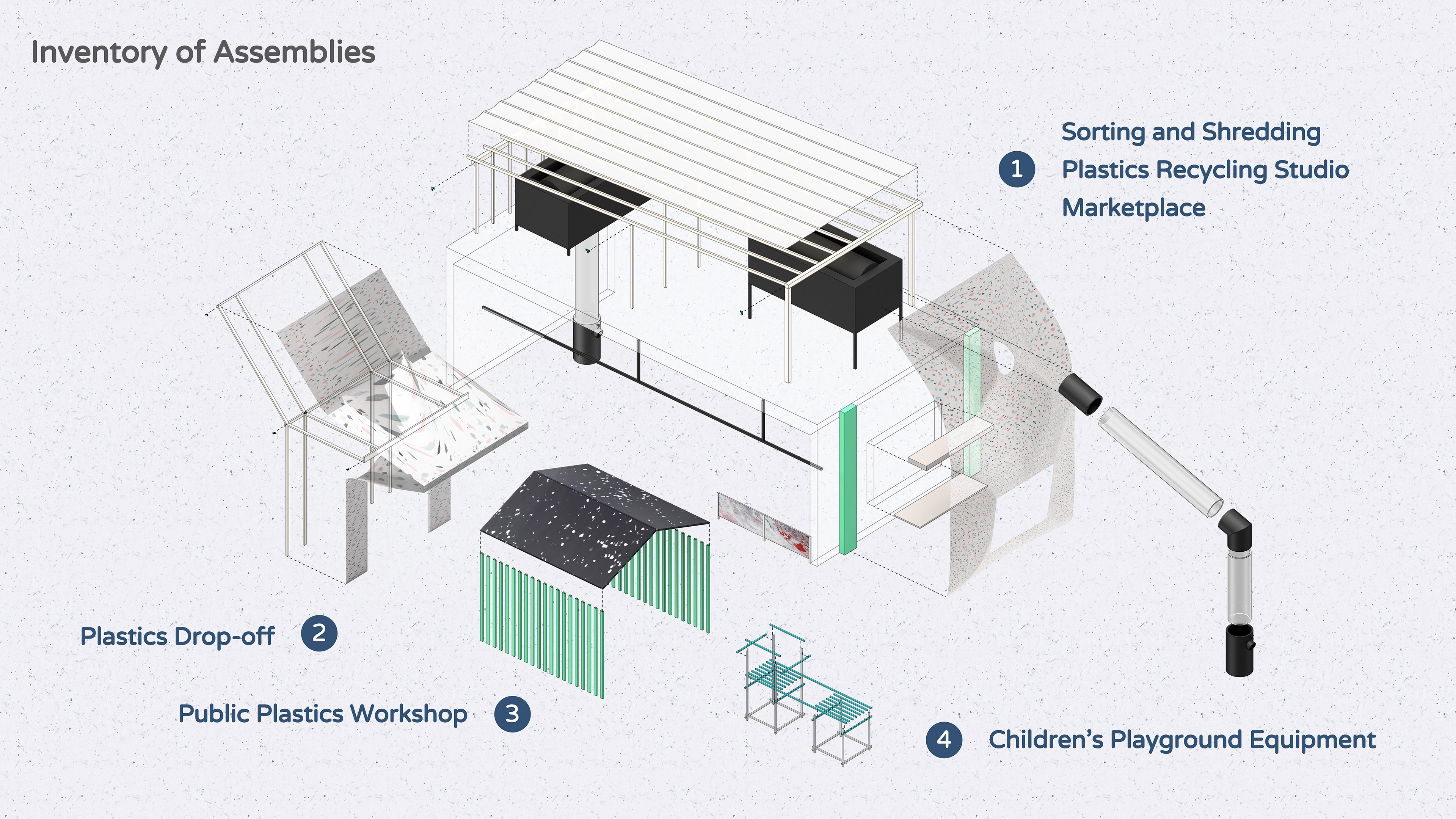
With the ever increasing production and even more so disposal of plastic materials, we need new methods of awareness and engagement not seen before. This material cultural center focuses on new ways we can take advantage of the material already produced, no matter what form it's in. So whether it's a collection of empty water bottles or shredded rubber tires, the site seeks to find a method of giving these often disposed materials a second life.
Part of the goal in this project was to create a temporary solution that can be easily disassembled – so most of the site is comprised of many modular pieces that can come together to create large assemblies that facilitate four main key objectives for this project.
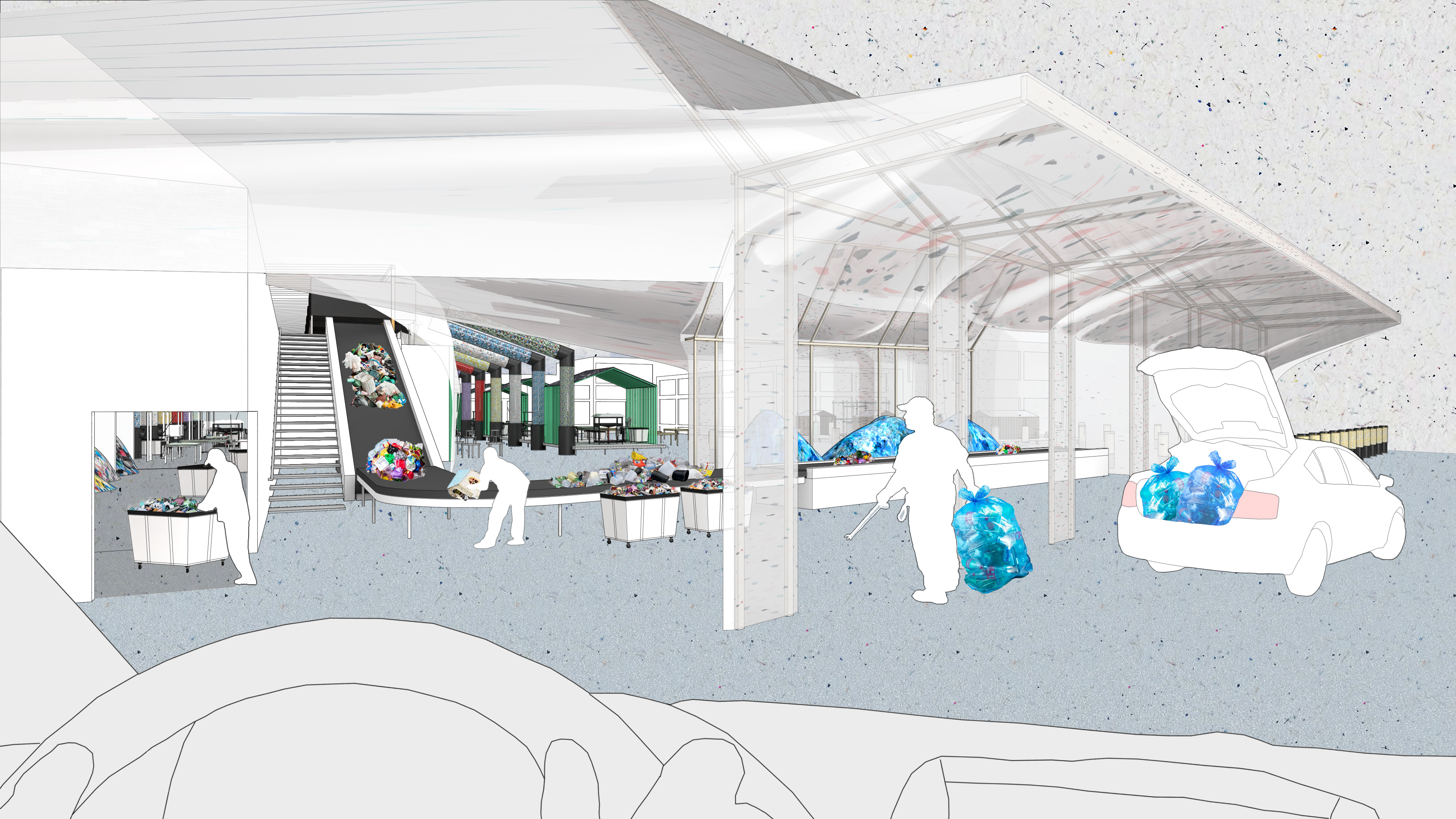
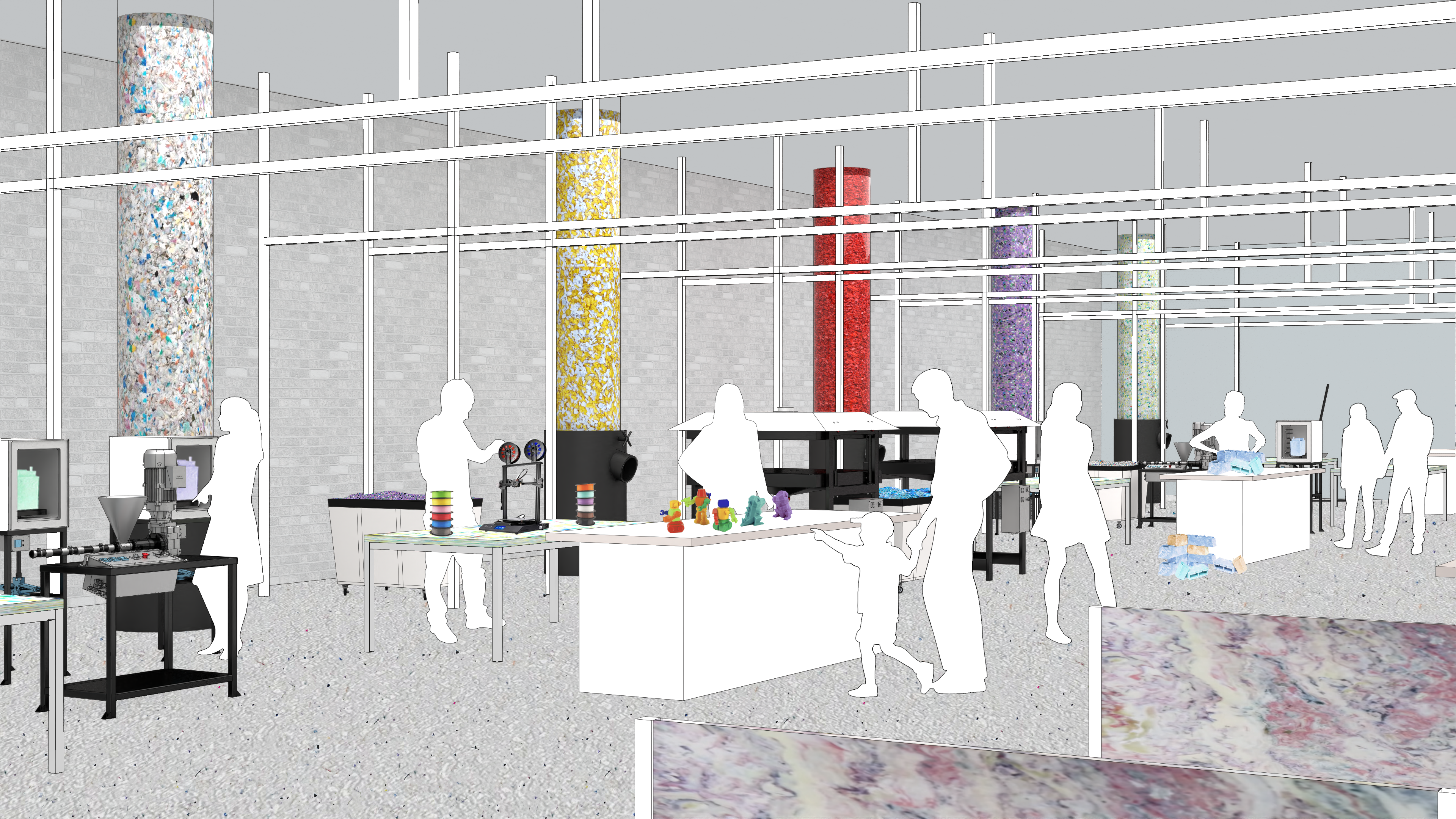

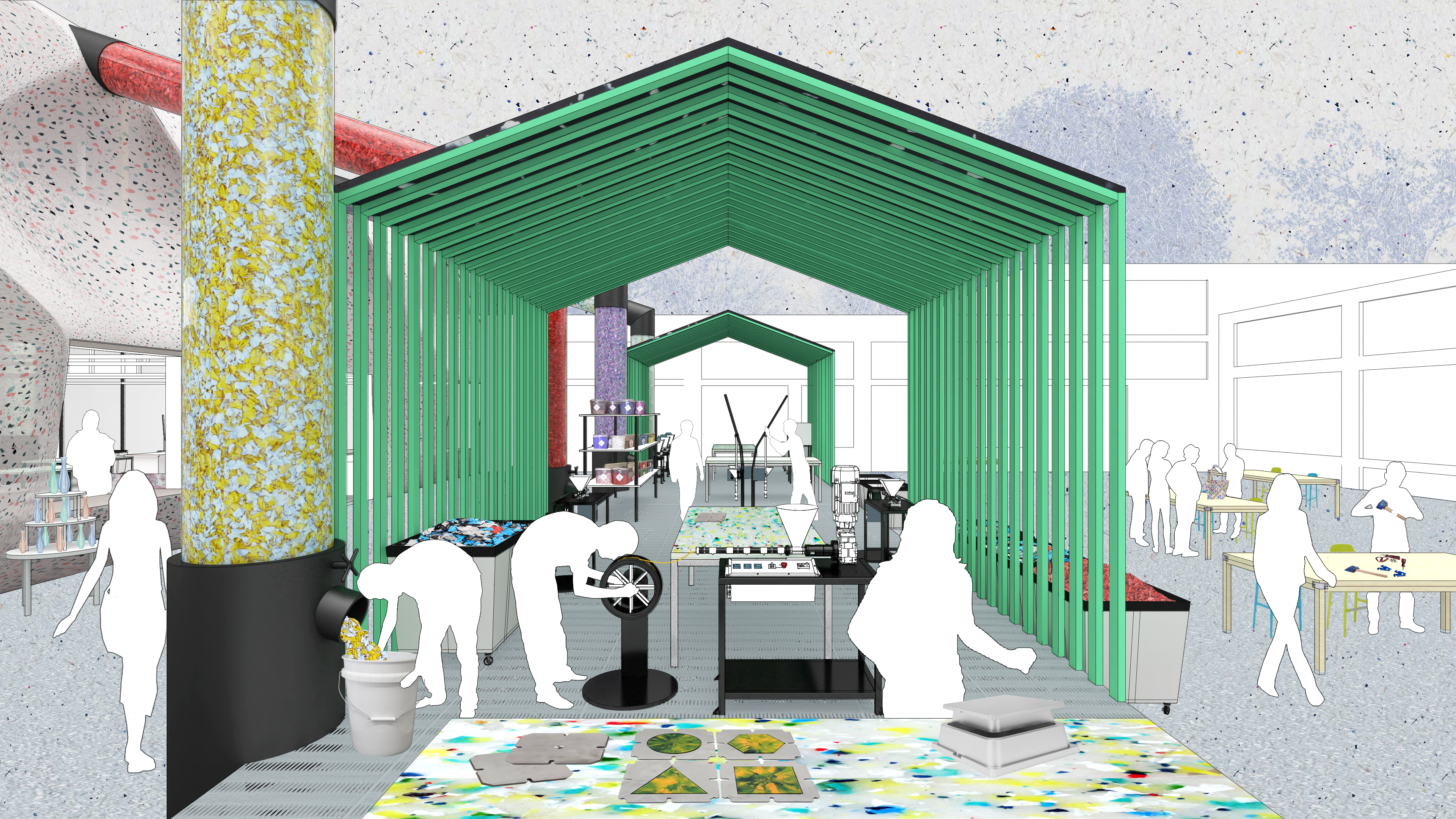
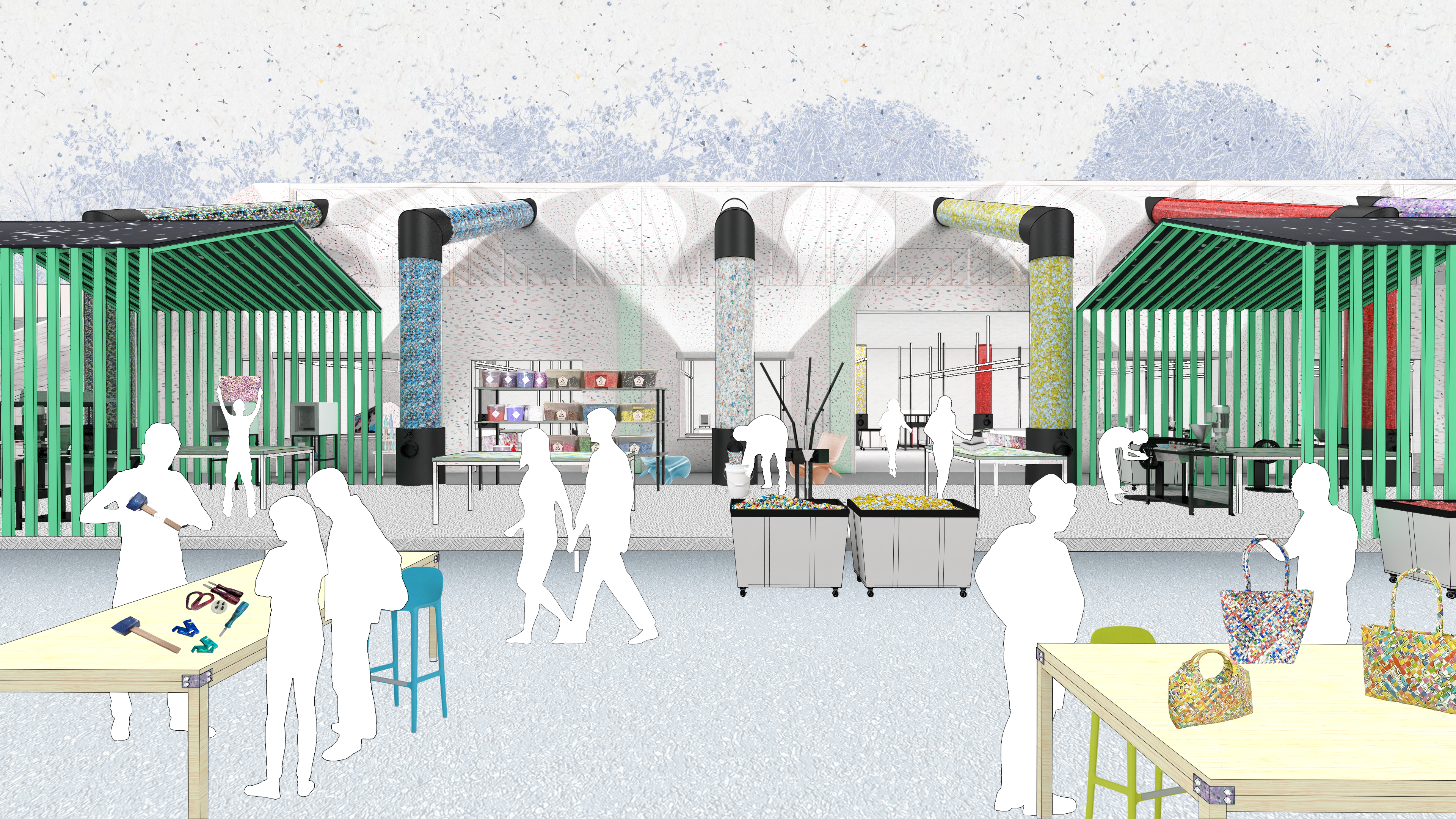
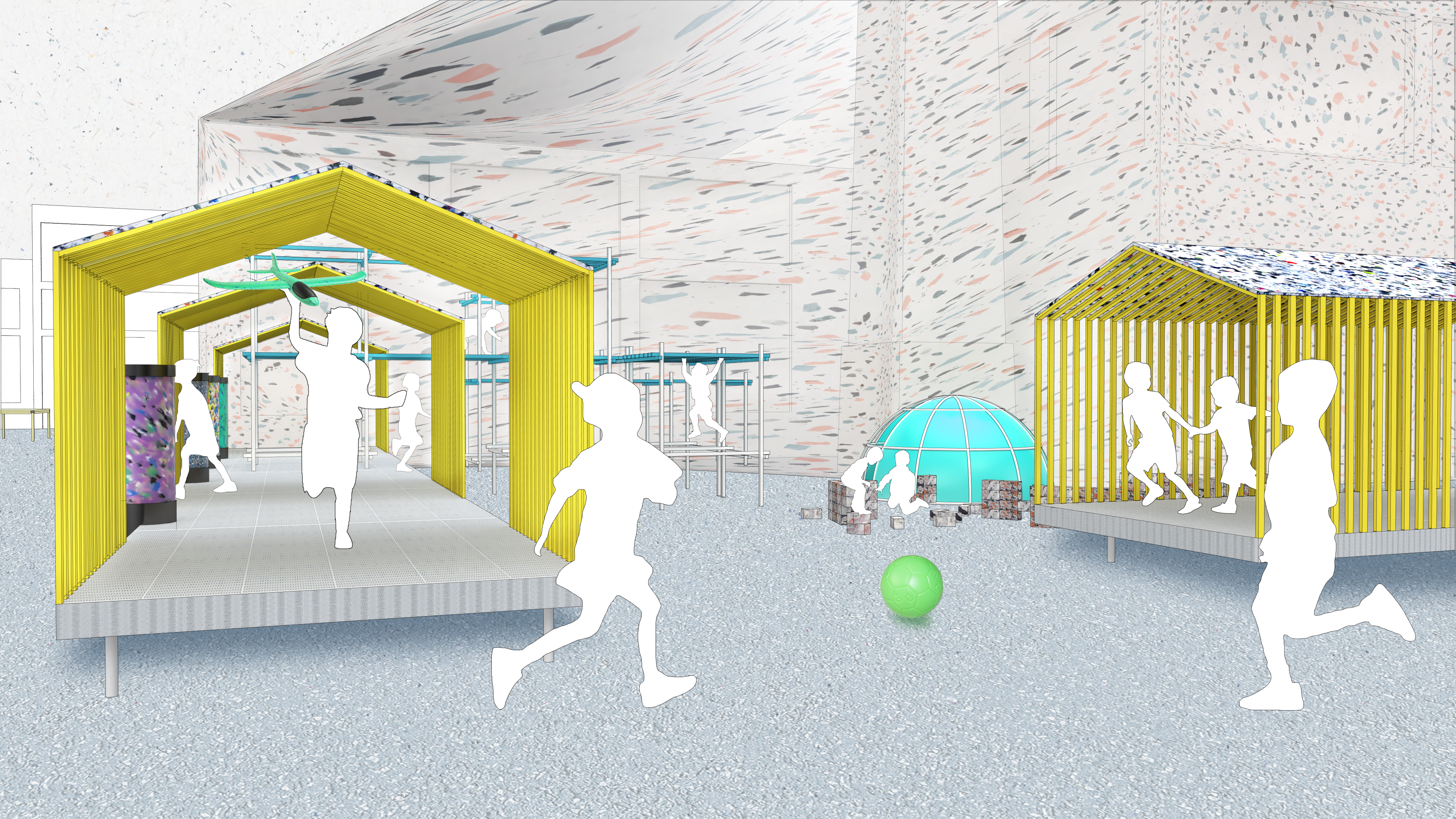
The site for Bazaar Plastic shortcuts Washington and Liberty Street at an abandoned lot in Ann Arbor, Michigan, providing a means for people to drive through and drop off their plastic waste materials. These are then collected and sorted in a couple different ways. The first is to separate material that is either recyclable or not. Anything that isn't is collected here and sent to a proper waste facility. Everything else is then sent to either the shredders upstairs where it is separated into the specific type of plastic, or it is collected as-is and stored to be potentially used by artisans or the workshop.
In the up-cycling studio, there will be machines and specialized tools used for artisans to produce more refined and re-sellable products. Things that require a bit more craft. Whether that is using equipment that may be too complex or potentially dangerous for the general public.
This ultimately creates a space just outside that makes use of these large windows to produce these market stalls. These products would then be displayed out here for people to purchase. Things such as jewelry, accessories, or furniture.
The other side of this is the core public engagement that makes this site meaningful – the public workshop. This is the area where people can come to essentially bring their own plastics and turn them into something new. Inspired by the open source Precious Plastic program, this would facilitate many of the tools and machinery that people can actually use on their own to create simpler objects with precast molds for example and instructors to guide them.
This provides the perfect stage to allow public classes on how to make certain items and from certain materials. It not only provides a space where people can make something new without even needing to purchase any additional material. There often needs to be an incentive for people to recycle, whether it’s convenience or they’re getting something out of it, like a bottle returns for example. It's a space for learning and it creates a new tangible form of awareness that a problem like this desperately needs.
Using some of the materials created in this workshop or studio, it can create whole assemblies and even toys entirely out of recycled plastic.

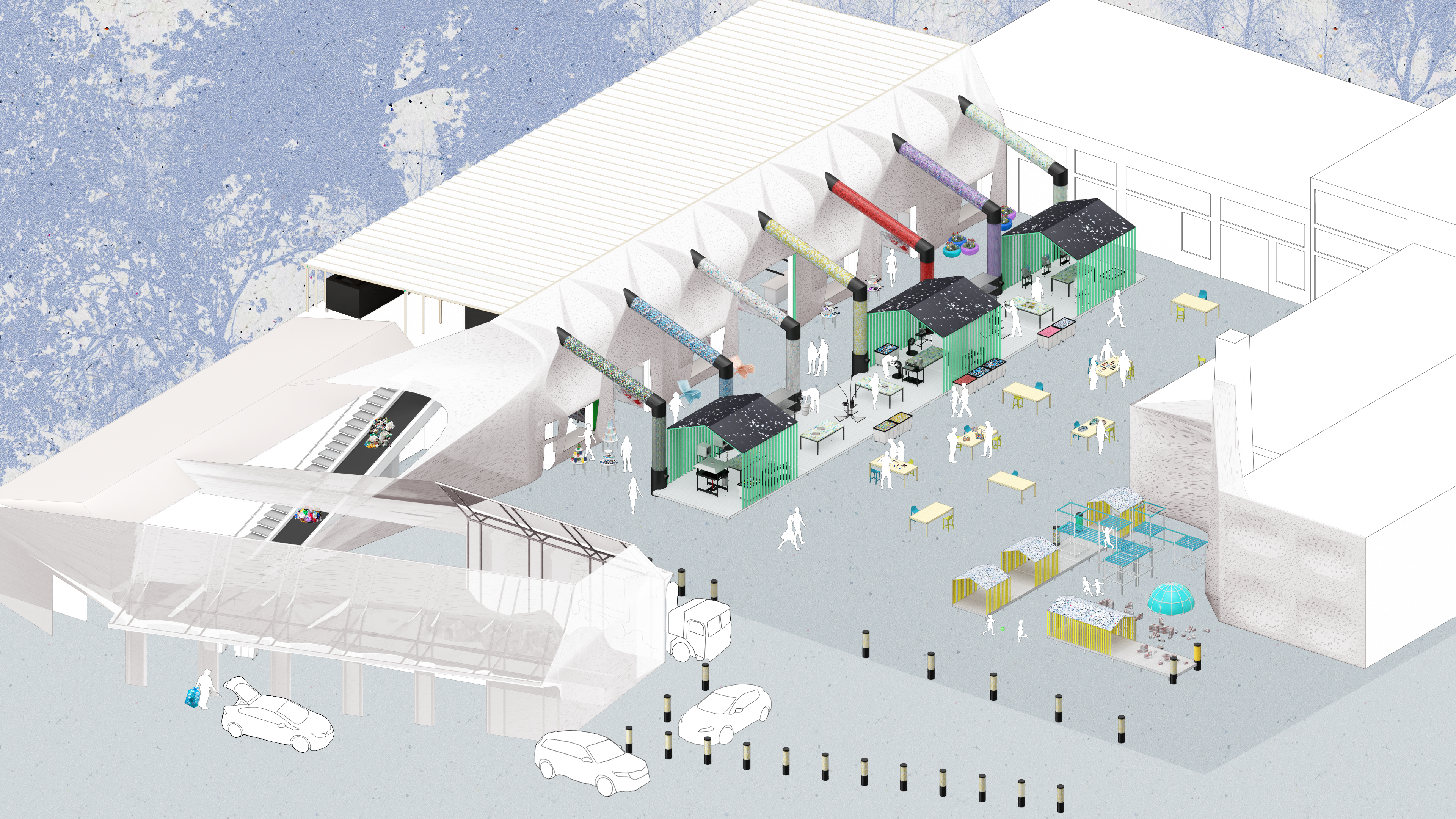
In a world where more than 90% of plastic is never recycled, Bazaar Plastic seeks to provide a reason to do so. If people can see the vast ways that these seemingly single-use plastics can be compressed, molded, shape-shifted into, hopefully there will be a change in the way people perceive the life cycle of plastics.